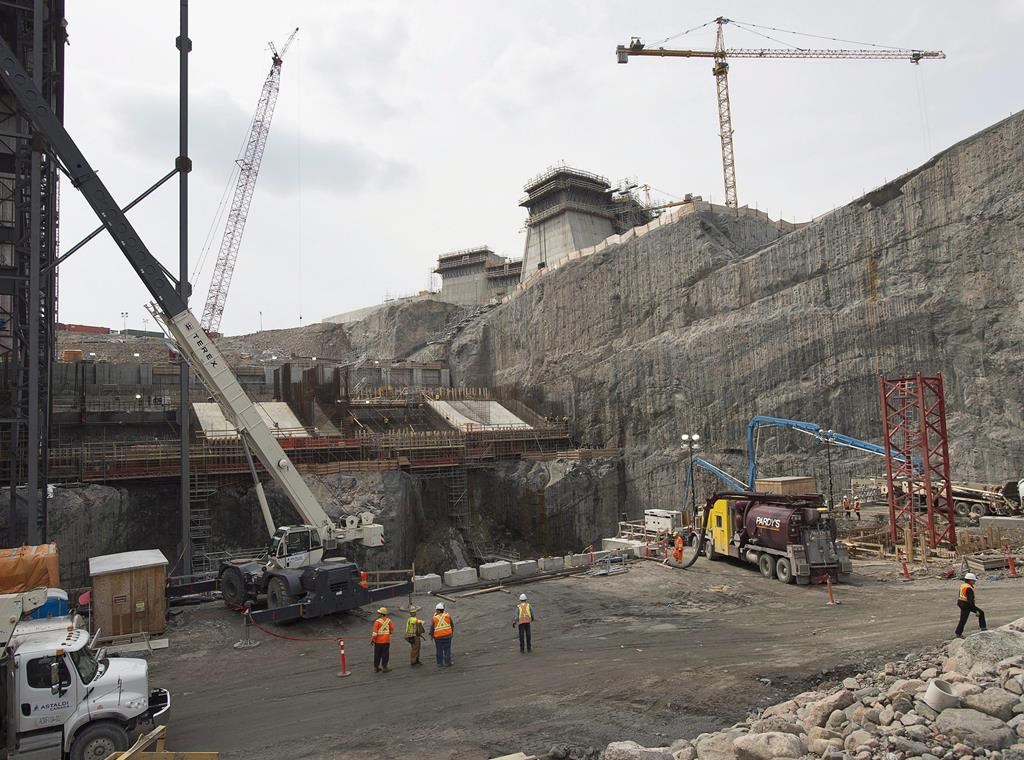A Nova Scotia regulator has approved a 2.4 per cent power rate hike for 2025 to help the province’s utility compensate for delays in Muskrat Falls electricity.

But that figure for residential customers would have been far higher without a federal bailout.
Because of the delays, Nova Scotia Power had to purchase fuel at a higher-than-normal price to provide electricity to its customers.

Get breaking National news
In response, Ottawa offered the utility a $500-million loan guarantee in September to reduce the costs of borrowing money to cover the added fuel charges.
Ottawa announced the guarantee to avoid what it and the power company estimated would have been rate hikes of up to about 19 per cent a year to cover the costs of alternative fuels.
The Nova Scotia Utility and Review Board approved the 2.4 per cent hike, which is the amount the utility can charge customers to cover its accumulated debt for the fuel.
The utility helped pay for construction of the underwater transmission link between Nova Scotia and Newfoundland that carries electricity generated by the Muskrat Falls hydroelectric project in central Labrador.
But the massive dam and generating station has been inconsistent in delivering electricity over the past five years.
This report by The Canadian Press was first published Nov. 29, 2024.








Comments